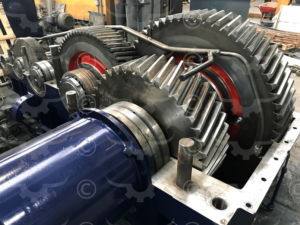Supplier Evaluation, Is it necessary?
Many companies struggle to understand the true breadth and risk profile of their industrial parts supplier connections.
One of the major risks businesses face are the third-party agents, distributors, and suppliers. Managing regulatory risk entails effectively managing third parties in today’s context of heightened regulation.
The difficulties of vetting suppliers
In a survey done by Dow Jones Risk & Compliance, half of procurement professionals admitted that the time it takes to vet suppliers can lead to cutting corners to complete tasks faster, and 40% admit that senior-level relationships with suppliers can impact the vetting process.
There is also a significant disparity in the attention paid to various risks identified as serious concerns by businesses. Variety of factors, including financial, supplier size, and supplier criticality to the product/service, influence the level of vetting applied to a supplier.
Some procurement professionals also indicate that their organizations do not extend vetting to 3rd suppliers and, as a result, have no insight into their supply chain beyond immediate suppliers. Companies may expose themselves to risks from shadow suppliers if they do not extend their due diligence checks to fourth parties.
Risk classifications
While it is important to remember that most suppliers are trustworthy, procurement fraud – in which companies or their representatives intentionally deceive an organization to gain a financial advantage – remains a serious problem.
Procurement fraud can occur at any point in a contract’s lifecycle and in a variety of ways, including genuine companies manipulating their details to win the contract or the formation of “shell” or “phantom” companies.
However, there are other consequences of procurement fraud aside from financial loss, such as the risk of repeat damage or operational impact from the loss of supply of goods and services. Even when there is no procurement fraud, suppliers in financial distress can pose a significant risk to an organization and its continued operation.
Steps available for supplier vetting?
Supplier vetting can be time-consuming, resource-intensive, and costly. A risk-based approach proportionate to the size and duration of the contract can be used to ensure an optimal balance between operational efficiency, cost, and the need for robust checks.
However, in all cases, such steps should include the following:
• Have the support of all key stakeholders and senior management within the organization;
• Be transparent, verified, and fully audited so that a comprehensive record of all checks performed is kept; and
• Be reviewed on a regular basis to ensure they are still fit for purpose.
Mechanical Power Advantage
Mechanical Power has proven the ability for over 45 years to find, vet, validate, secure and source from capable manufacturers meeting the needs of diverse consumers in our targeted industries.
Over the years, we have strengthened manufacturing partner relationships, developed new ones, leveraged others, expanded our boots on the ground and developed standard operating procedures that ensure we always have what the customer needs when the customer needs it.
Management of suppliers is just as important as management of customers
Businesses in the credit risk industry are encouraged to do frequent customer management assessments to better understand their clients’ financial stability. The advantages are obvious: a deeper understanding of your consumers allows you to know where your revenue comes from and where your risk is. Suppliers should be subjected to the same level of due diligence.
The usage of supplier vetting, and monitoring could save an organization from losing a critical supplier or being exposed to new hazards in their supply chain.
Initial supplier screening, followed by periodic checks or the use of a proactive monitoring service, can add an extra layer of procurement fraud protection and a wider range of supplier hazards.
We do the dirty work, bring in parts to print, manage inventory, and take a proactive approach to demand management to ensure OEM clients can rely on us to have what they need when they need it in unpredictable times. Continuity of supply is the first rule of Supply Chain Management.
Those that choose to collaborate with Mechanical Power may rely on supply continuity within their supply chains while leaving the noise to us.
We aim to make everything as simple as possible. We make an effort to make it entertaining. We try to make it, dare we say, enjoyable.
Author: Daniel Szwed
Digital Marketing Manager, Mechanical Power, Inc.




